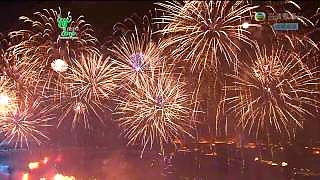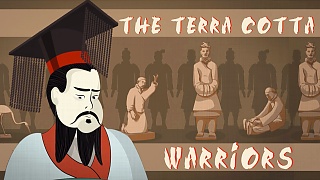
|
With Blondie in China ...
Visitor Guide to DunHuang, GanSu Province
Overview
DunHuang, located in GanSu Province, is a city of historical and cultural significance, famous for its strategic position on the ancient Silk Road and its remarkable Buddhist art. The city is best known for the Mogao Caves, a complex of Buddhist cave temples, as well as its stunning desert landscapes and historical relics.
Getting There
By Air: DunHuang Airport (DNH) is the nearest airport, located about 13 kilometers southeast of the city center. The airport has regular flights from major cities like BeiJing, ShangHai, and Xi'an. From the airport, you can take a taxi or a shuttle bus to reach the city center.
By Train: DunHuang Railway Station connects the city with various destinations across China. The station is located about 12 kilometers from the city center, and you can take a taxi or a bus to reach the main attractions.
By Bus: Long-distance buses from nearby cities and provinces also provide access to DunHuang. The main bus station is located in the city center, making it convenient for travelers.
Getting Around
Public Transport: DunHuang has a local bus system that connects major tourist spots and the city center. Buses are an economical way to get around.
Taxis: Taxis are readily available and relatively inexpensive. Ensure to have your destination written in Chinese for ease of communication.
Biking: Bike rentals are available for those who prefer a more active way to explore the city and its surroundings.
Main Attractions
Mogao Caves
The Mogao Caves, also known as the Thousand Buddha Grottoes, are a UNESCO World Heritage site and the highlight of DunHuang. The caves contain thousands of Buddhist statues and murals dating back to the 4th century, showcasing exquisite art and religious devotion.
Crescent Lake and Singing Sand Dunes
Located about 6 kilometers south of DunHuang, Crescent Lake is an oasis surrounded by the towering Singing Sand Dunes. The contrast of the lush green lake against the golden sand is a sight to behold. Visitors can enjoy camel rides, sandboarding, and hiking in the area.
Yumen Pass (Jade Gate Pass)
The Yumen Pass is a historic site that served as a vital checkpoint on the Silk Road. The ruins offer a glimpse into the ancient trade routes and the military significance of the area.
Yangguan Pass
Yangguan Pass, along with Yumen Pass, was an important gateway on the Silk Road. The site includes remnants of ancient walls and watchtowers, and a museum that provides historical context.
Historical Significance
DunHuang has a rich history as a major stop on the Silk Road, facilitating trade and cultural exchange between China and the West. The city's strategic location made it a melting pot of different cultures, religions, and artistic traditions.
The Mogao Caves were established as a place of worship and meditation, attracting Buddhist monks and pilgrims. Over the centuries, the caves became a repository of religious art, texts, and artifacts, making them one of the most significant cultural heritage sites in China.
Local Cuisine
While visiting DunHuang, you can enjoy a variety of local GanSu dishes. Here are some recommendations:
Beef Noodles: A signature dish of GanSu Province, featuring hand-pulled noodles in a flavorful beef broth.
Yellow Noodles with Donkey Meat: A unique local specialty, featuring tender donkey meat served with yellow wheat noodles.
DunHuang Toasted Buns: Crispy buns filled with minced meat and spices, a popular snack in the region.
Shopping
Shazhou Night Market: A vibrant market offering a variety of local handicrafts, souvenirs, and street food.
Silk Road Markets: Several markets in DunHuang sell traditional Silk Road goods, including silk products, jade, and antiques.
Local Shops: Numerous shops in the city center offer a range of local specialties, such as dried fruits, nuts, and unique crafts.
Accommodation
Luxury Hotels: DunHuang offers several high-end hotels with excellent amenities and services, such as the DunHuang Hotel and the Silk Road DunHuang Hotel.
Mid-Range Hotels: There are numerous mid-range options providing comfortable accommodations at reasonable prices, including international chains and local boutique hotels.
Budget Accommodations: Budget travelers can find affordable guesthouses, hostels, and budget hotels throughout the city.
Tips for Visitors
Best Time to Visit: The best times to visit DunHuang are spring (April to June) and autumn (September to November) when the weather is mild and pleasant.
Clothing: Wear comfortable walking shoes and dress in layers to accommodate changing temperatures. Bring a hat and sunscreen if you plan to spend time outdoors, especially in the desert areas.
Respect Local Customs: Be respectful of local customs and traditions, especially when visiting religious and cultural sites.
Language: While Mandarin is widely spoken, learning a few basic phrases or using a translation app can be very helpful.
Plan Your Visit: The attractions in DunHuang offer a mix of historical significance and natural beauty. Plan your visit to include both leisurely activities and sightseeing to fully appreciate the area's offerings.
Conclusion
DunHuang, with its rich history, stunning desert landscapes, and cultural heritage, offers a unique and unforgettable travel experience. Whether you're exploring the ancient Mogao Caves, enjoying the serene beauty of Crescent Lake, or delving into the city's Silk Road history, DunHuang promises a journey filled with discovery and wonder. Plan your visit carefully to make the most of your time in this extraordinary city in GanSu Province.
|





 The fake left and colonialism in the new cold war
The fake left and colonialism in the new cold war


















